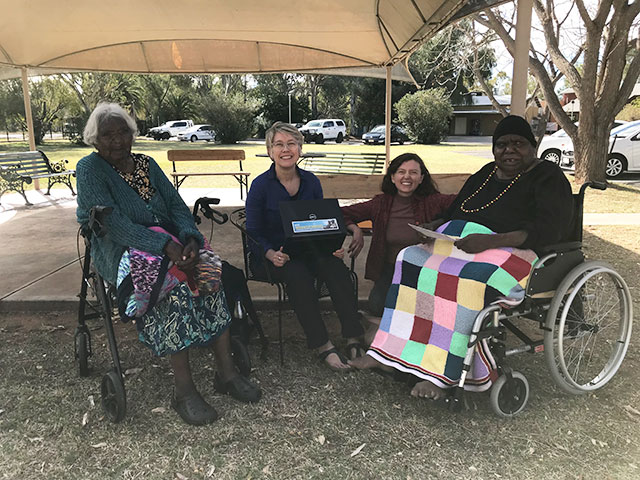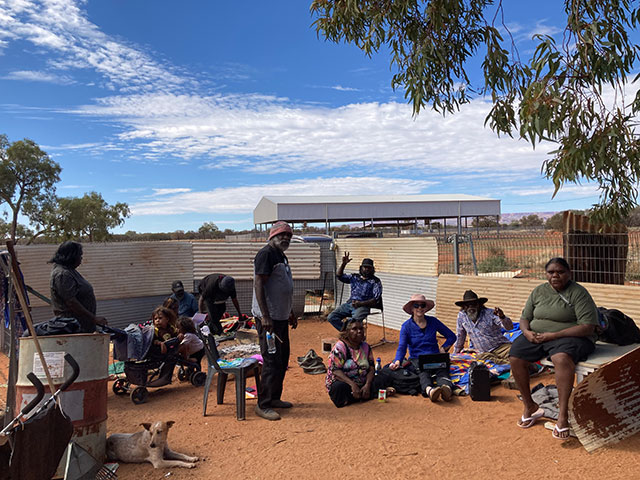When researcher Dr Sarah Holcombe from Sustainable Minerals Institute’s Centre for Social Responsibility in Mining was undertaking her PhD field research in the late 1990s, she didn’t realise how important the recordings she made of story and song would become for the next generation.
Dr Holcombe lived in the central Australian community of Mt Liebig (Amunturrngu), for 14 months to work on her thesis project Amunturrngu: An emergent community in Central Australia.
In the community and neighbouring outstations there was an active group of senior Pintupi and Luritja women who simply loved to sing.
Dr Holcombe said she had not initially intended to focus on women’s ritual, but it became an important element of the PhD.
“The women sang inma yirritjja (old song) and inma kuwaritja (new song) and they were so enthusiastic about performing and being recorded,” she said.
“They held an extensive repertoire of knowledge about Dreaming songs from that Country and from the community of Mt Liebig, even though they were not all from that place. Also at that time, there was a senior Ngankari (traditional healer) living at one of the outstations who had the ability to Dream inma (new song), so a corpus of new song also emerged.”

When Dr Holcombe completed her PhD, the cassette recordings were held by the Australian Institute of Aboriginal and Torres Strait Islander Studies (AIATSIS), and when the Institute undertook a digitisation program several years ago, it provided an opportunity to return the recordings to the families on USB.
“I received a call from the Central Land Council (CLC) around three years ago as a senior woman had passed away in Papunya, and they wondered if I might have some audio recordings of her.
“Unfortunately, I didn’t for her, but it put into action a plan that I cooked up with senior Anangu woman Alison Anderson to return copies of the material.
The trip was postponed several times due to COVID-19 but with the support of the CLC it took place in September 2022.
“Unfortunately, Alison was unable to participate but along with Hannah Corbett, the CLC anthropologist for the region, I spent a week visiting the families at the four different communities of Papunya, Haasts Bluff, Mount Liebig and Kintore.

“It was so lovely to see people again, meet the younger family members and return knowledge and stories to them, rather than seeking knowledge from them.
“Sadly 12 of the 16 senior women are now deceased, but the recordings are a wonderful reminder of the women and provide important cultural heritage that the families are keen to ensure is kept alive.
While listening to a recording at Haasts Bluff, Kathleen Dixon shared some of her own reflections on how happy the old women were when they were out on country, dancing and singing.
“[Listening] makes you feel strong in the heart. To keep it [alive]. Palya Lingku [it’s really good],” she said.
As a result of the repatriation the Watiyawanu school at Mt Liebig is going to use the open access recordings to teach the pupils some of the old songs for that Country.



